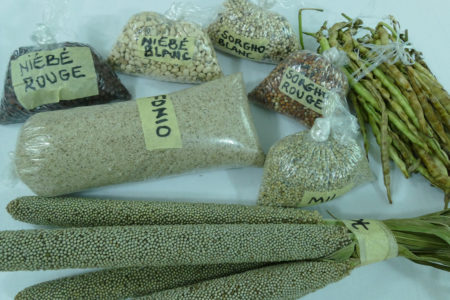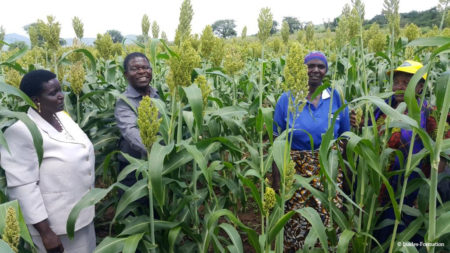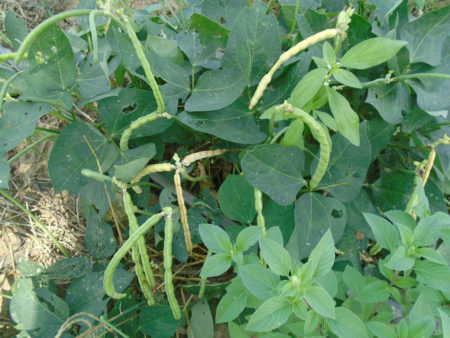Most food crops and livestock products and/or products from the gathering of wild plant foods traditionally dominant in the diet of local populations in Sub-Saharan African countries are nowadays losing momentum in terms of production and declining in importance in the food basket of households. Examples include millet, fonio, sorghum, cowpea, beans, taro, sesame, sweet potato, local chicken, hazelnuts, locusts and wild fruit, etc.

There are various reasons for this:
- Gradual abandonment, by producers, owing to harsh working conditions, especially at the packaging level;
- Changes in consumption patterns due to substitution by other products. For example, the share of imports in total cereal consumption, estimated at about 5%, right after independence, has been around 25%[1] in recent years, given the gradual increase in consumption of rice, wheat and by-products;
- Decreased support for the development of the family agricultural sector and food exchanges between cities and rural areas, the emphasis placed on policies to promote monoculture for export at the expense of traditional crops.
Yet, these crops have great virtues – globally recognized nutritional values, therapeutic values, cultural/traditional values. These are also resilient food crops growing on poor soils, tolerant to climate change, etc. Finally, family farmers, especially women, are the custodians of a vast amount of knowledge and know-how accumulated on these products in the area of enriched farming practices handed down from generation to generation, recipes for cooking “local dishes” and the preservation of agro-biodiversity.
In fact, the concept of “sovereignty foods” stems from these characteristics of resilience, knowledge and know-how accumulated on seeds, cultural techniques and recipes for cooking. Because of these characteristics, family farmers are sovereign, outside the patented seed circuits, less dependent on imported fertilizers and chemical inputs, and have control over their knowledge and know-how. In short, the crops preserve the sovereignty of African countries over their food systems!

In view of the above, the promotion of food sovereignty in African countries necessarily requires the repositioning of “sovereignty foods” at the heart of their food systems. It is in this spirit that Inades-Formation initiated in early 2017 the “Program to support the development of food systems based on family agriculture for an adequate, healthy and sustainable food supply for the populations of Sub-Saharan African countries.
Through this program, Inades-Formation aims to support:
- The consolidation and amplification of the intellectual and cultural heritage of local populations (local knowledge, know-how and good manners) in terms of cultural practices and recipes for cooking the “local dishes” enriched and transmitted from generation to generation, which are important levers of food sovereignty;
- The promotion of local genetic resources and the preservation of agro-biodiversity – selection, multiplication, conservation and improvement of cultivated varieties particularly adapted to local ecosystems, important factors of resilience to climate change and economic volatility;
- The emergence of a social and solidarity-based economy (urban-rural solidarity), as a driving force for improving the system of supplying local and urban markets and enabling all those involved in production, processing and distribution to live with dignity from the fruit of their labor;
- Awareness-raising on the strategic role of “sovereignty foods” in local and national food systems and the drawing of decision-makers and the general public’s attention on: 1) the threats linked to the gradual disappearance of local seed varieties at the basis of Africa’s rich biodiversity. 2) family farming and its economic, social, environmental and cultural functions. 3) The major role of African women in the regular supply of food to cities. 4) Issues of access and control of producing resources (land, financing, water, know-how) by farm families. 5) The supply of urban centers and access to foodstuffs for underprivileged groups.
Through this program, which mainly aims at promoting “sovereignty foods”, Inades-Formation continues to serve the common good, contributing to the enjoyment by all of the right to adequate, healthy and sustainable food.

[1] Source: FAOSTAT data, 2004









